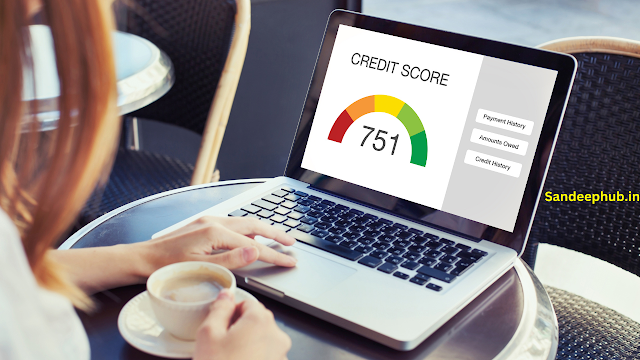Mastering Your Credit: A Complete Guide to CIBIL Scores and Reports
(CIBIL) Credit Information Bureau India Limited is a credit information company established in August 2000. It is the country's oldest and most trusted credit information company. A credit bureau is a central depository comprising the credit history of all commercial and retail borrowers. The Bureau disseminates this information to its member groups through a credit information report (CIR). Members can use this information to make essential decisions on lending. It was established by the Government of India and the RBI.
CIBIL has two focus areas –
• A Commercial Bureau that deals with the records of companies and organizations, and
• A Consumer Bureau that deals with consumer credit records.
Participants of CIBIL
- Banks
- Financial Institutions
- Non-Banking Financial Companies
- Housing Finance Companies
- State Financial Companies
- Credit Card Companies
What is CIBIL?
Credit Information Bureau (India) Limited, commonly known as CIBIL, is India's premier Credit Information Company (CIC). Its primary function involves collecting and maintaining individual payment records concerning Loans and credit cards. These records are diligently submitted to CIBIL by member banks and credit institutions every month.
Subsequently, CIBIL utilizes this data to generate comprehensive Credit Information Reports (CIR), along with credit scores, which are then furnished to credit institutions. This provision serves to aid in the assessment and facilitation of loan applications. Established with a specific purpose, CIBIL plays an integral role in India's financial ecosystem.
Its presence significantly contributes to lending institutions & effective loan portfolio management. Simultaneously, it catalyzes expediting credit approval processes for consumers. By leveraging the insights provided by CIBIL's reports and scores, loan providers can make informed decisions, thus streamlining their business operations.
This, in turn, enables consumers to access credit swiftly and under more favorable terms, thereby enhancing their financial prospects.
How Does It Work?
Since its inception, CIBIL has played a crucial role in Indian financial infrastructure. Using CIBIL's products has significantly transformed the credit lifecycle for both loan providers and consumers. Whether aiding loan providers in streamlining their business operations or
assisting consumers in accessing credit swiftly and on more favorable terms, CIBIL's offerings have catalyzed a substantial shift in the credit landscape.
CIBIL gathers and maintains individuals payment records related to loans and credit cards. Member banks and credit institutions submit these records to CIBIL every month. Subsequently, this data generates Credit Information. Reports (CIR) and credit scores. These reports and scores are then furnished to credit institutions to aid in assessing
and approving loan applications.
Additionally, banks utilize a portfolio review product, offering credit grantors a holistic perspective of their borrowers & credit engagements with various lenders.
CIBIL collects commercial and consumer credit-related data and collates it to create and distribute credit reports to its members, who are credit institutions and banks in
India.
CIBIL's over 900-strong member base includes:
- All leading public & and private sector banks.
- Financial institutions.
- Non-banking financial companies.
- Housing finance companies.
CIBIL's products, especially the Credit Information Report (CIR) and CIBIL Trans Union Score are essential in the loan approval process. Once the loan provider has decided which loan applicants to evaluate, it analyses the CIR / Score to determine their eligibility.
Eligibility means the applicant can take additional debt and repay additional outflows given their current commitments. After completing these first two steps, the loan provider
will request the applicant's proof of income and other
relevant documents to finally sanction the loan.
What does a credit information report contain?
Consumer CIR
Borrower’s information
| PERSONAL | ACCOUNT |
|---|---|
| Name and Address | Types of credit taken |
| DOB | Amount of credit |
| Telephone Numbers | Outstanding current balance |
| Voter ID | Days of overdue payment |
Consumer CIR
Borrower’s information
| PERSONAL | ACCOUNT |
|---|---|
| Registration number | Number of Credit facilities |
| Relationship details | Status of a suit filed |
| DUNS number | Borrower’s assets’ classification |
| Borrower’s inquiries | Guarantor’s details |
What do lenders look for in CIR?
- Debt Burden Ratio
- Credit Score (High or Low)
- Past Payment Behavior
- Loan Accounts or Credit Card Account
- Status of filed suits against borrower
| Credit Score Range | Credit Score Rating |
|---|---|
| 300 – 549 | Poor |
| 550 – 649 | Fair |
| 650 – 749 | Good |
| 750 – 900 | Excellent |
Based on all the data collected, a CIBIL Report is generated, a recorded document that reflects your credit history over a considerable period. These reports further, assist in evaluating the creditworthiness of the individual or corporate entity.
It typically includes the following information-
• Applicant's details like (name, age, gender, and address)
• CIBIL score
• Number of inquiries put forward by prospective lenders upon receiving a loan/credit card application
• History of past and present loans, along with all payment records
• Instances of defaults on loan/credit card payment.
| Factor | Percentage Contribution |
|---|---|
| 300 – 549 | 35% |
| Credit Utilization Ratio | 30% |
| 650 – 749 | 15% |
| Types of Credit Accounts | 10% |
| Recent Credit Inquiries | 10% |
Significance of CIBIL Score
- Shows possibility of a failure of more than 91 days of loan payment.
- Indicates the financial and credit health of the borrower.
- Authenticity of information as decided by 2 institutions- Credit Information
- Bureau (India) Ltd and TransUnion.
- More than 90% of the applicants - 700+ Score.
- Approx. 4.7% applicants - < 650 score.
- Average Score:- Between 750-799.
Summarize
- 3-digit numeric summary of the credit history.
- Indicates the financial and credit health.
- Score ranges between 300-900.
The Higher the Score, the higher the likelihood of
loan approval.
Ways to Check Your CIBIL Score
directly from your smartphone. These applications often offer extra features such as credit monitoring and personalized financial insights.
The impact of a CIBIL score on loan approval varies across different
Types of loans.
Personal Loans:
Home Loans:
Car Loans:
vehicles and financing alternatives.
Education Loans:
CIBIL vs. Other Credit Bureaus
Conclusion :
The essence of finance is the prediction of the risk, whether borrowers will keep their promises. Risk estimates are based on information; and in microfinance, this information is usually qualitative and informal.
It resides with group members or with loan officers. Credit scoring takes a different tack. It predicts risk based on quantitative information that resides in the management- information system of the lender. Credit scoring for microfinance can work.
Credit scoring has become an increasingly dominant factor in our economic lives. Credit scores dictate whether a person will be able to buy (and keep) a home by obtaining a reasonable mortgage. They determine access to other kinds of credit, such as credit cards, as well.
It is less potent than scoring for a credit card or mortgage lenders in wealthy countries. It will not replace the judgments of loan officers or loan groups based on informal, qualitative knowledge. Still, scoring does have some power to predict risk (and thus to cut costs) even after the group or loan officer makes its best judgment.
Therefore, scoring supplements existing microfinance technologies but does not replace them. Furthermore, scoring helps predict risk and reveals how financial characteristics and behaviors impact creditworthiness.
FAQ
How can I check my CIBIL score?
You can check your CIBIL score through various online platforms such as the official CIBIL website, as well as through mobile applications provided by banks and credit bureaus. You can also request a copy of your credit report from CIBIL directly.
How often should I check my CIBIL score?
It's advisable to check your CIBIL score at least once a year to monitor your credit health and detect any errors or discrepancies in your credit report. Additionally, you may want to check your score before applying for major loans or credit cards.
Can I improve my CIBIL score if it's low?
Yes, you can improve your CIBIL score over time by adopting responsible financial habits. This includes paying your bills on time, reducing credit card balances, avoiding maxing out your credit limits, and maintaining a healthy mix of credit accounts.
How long does it take for changes in my credit behavior to reflect in my CIBIL score?
Changes in credit behavior, such as paying off debts or reducing credit card balances, may take some time to reflect in your CIBIL score. Typically, it can take anywhere from one to three months for these changes to be updated in your credit report and subsequently impact your score.
Does checking my own CIBIL score impact my credit score?
No, checking your own CIBIL score, also known as a soft inquiry, does not impact your credit score. However, when lenders or financial institutions conduct hard inquiries while reviewing your credit report for loan approvals, it may have a minor impact on your score.
Can I dispute errors on my CIBIL report?
Yes, if you find any inaccuracies or discrepancies in your CIBIL report, you have the right to dispute them. You can contact CIBIL directly to initiate the dispute resolution process and request corrections to your credit report.
Is my CIBIL score the same across all credit bureaus?
No, your CIBIL score may differ from scores provided by other credit bureaus such as Experian, Equifax, or TransUnion. Each bureau uses its own methodology to calculate credit scores, leading to slight variations in scores across different bureaus.

.png)



.png)



